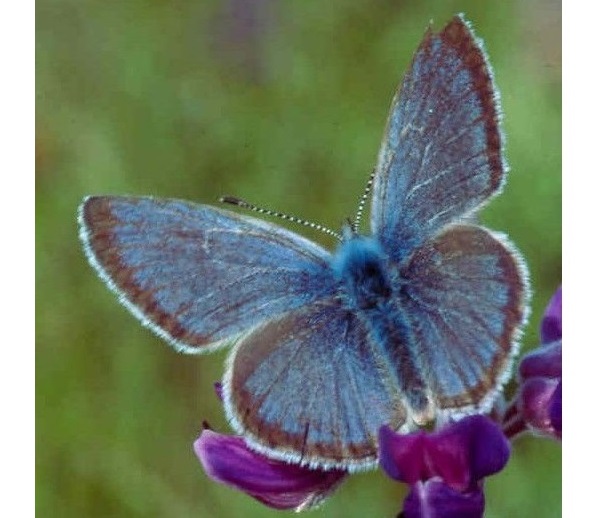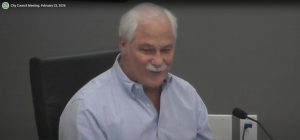WREN celebrates West Eugene wetlands for Earth Day, Earth Month, and year-round
6 min read
One Eugene nonprofit has so many activities for Earth Day, they’re celebrating Earth Month.
Isabel Justiniano (WREN, education director): My name is Isabel Justiniano and I’m the education director for WREN, which is Willamette Resources and Educational Network, and we’re right here in West Eugene. We’re a nonprofit that focuses on providing education programs for the general public, and those programs center around the critical habitats and threatened and endangered species of the Willamette Valley.
And for Earth Day, we’ve been celebrating it more as Earth Month, since there’s been a lot going on in our community.
[00:00:41] Some of the events that we have worked on, starting from the very beginning of the month: We started with our ‘Meet the Board’ event, which was an opportunity for the community to meet our WREN board and learn a little bit more about us and our education programs. We also continued the week working with additional partners.
[00:01:01] We worked on a weeding party event with the city of Eugene Parks and Open Space, Friendly Area Neighbors, and Beyond Toxics, which are other great organizations doing some wonderful restoration work of our wetlands and other critical habitats.
[00:01:19] And then for Earth Day, April 20, we had a day of two events. That afternoon, we had the opportunity to have a fundraiser at the ColdFire Brewing Company. They were able to donate a dollar of each draft that they sold to our Earth Day Fund to fund our education programs.
[00:01:40] And we started off with a plant day at Turtle Swale, which is one of the restoration sites that the Bureau of Land Management is working on restoring. And so what we did is we had a planting day where we pulled out some of the invasive woody species, started cutting them out of the space, and we planted some native species in the area, in its place. We planted rosy checkermallow, a native species of the area, with some partners that we have at the U of O Holden Center and then some other local community members who joined in that effort.
[00:02:19] So that is one of the things we do with our restoration-type projects. We try our best to restore the area to the native species—and that includes plants and animals that inhabit that space. And a lot of that has goes back to not just getting rid of the invasive species and making room for the native species, but also cleaning up any garbage or anything else that we might see in the area as well.
[00:02:44] WREN is really excited to be doing these extra events and programs this month, but we have these types of events and programs year-round. WREN focuses on educating about our West Eugene wetlands and our oak savanna and wet prairie habitats, and we do this through the education programs. So mainly we work with students from K-12 grade levels.
[00:03:10] And what we do is a series of programs that we will teach in the classroom. So we go to the schools, teach the students in their classrooms about these habitat types and we’ll also talk about the species that inhabit them. So some of the threatened and endangered species we talk about are Kinkaid’s lupine, Fender’s blue butterfly, Some newer species too of concern that we’re talking about, Western pond turtle, and lots of other different animal and plant species as well.
[00:03:43] So we go into the classrooms, we talk about these habitat types, these species, and then we’ll also bring students out to participate in field trips here in the West Eugene wetlands, so they’re able to connect what they’re learning in the classroom to the field trips that they participate in outdoors.
[00:04:00] We launched some new programs, and one of our main ones is our Youth Land Stewards Education Program (YSLEP) for fourth- and fifth-graders. And this program is designed to educate students about the careers that they could participate in as adults in environmental stewardship, to introduce them to the outdoors, and also to our critical habitats and species. So that’s mainly what we do with the students.
[00:04:25] For families, we host programs on Saturdays, mostly during the summer months, called Family Exploration Days. And Family Exploration Days are centered on encouraging and getting families excited about going outdoors and exploring with a variety of exploration tools.
[00:04:45] So what we do is we bring exploration backpacks full of guides and magnifying glasses and scavenger hunts. And then we also give families the opportunity to borrow some binoculars and bug nets and all sorts of cool stuff so that they can explore the outdoors.
[00:05:01] And then for our adult lifelong learners, we have monthly programs called Wetland Wanders, where we will host a different expert at a different restoration site where we work to talk about a different topic. And these Wetland Wanders are hosted every second Tuesday of every month from 9 to 11, rain or shine.
[00:05:24] And what we’ll do is we’ll walk with the community members that attend and talk about the restoration of that site. And we’ll also talk about other specific topics that might be a little more specific to soils and hydrology of the area, maybe some of the special status species of the area; sometimes we’ll talk a little bit about other outdoor recreation activities, like we’ll do some birding days or we’ll do birding observations. So it kind of varies from month to month but yeah, it’s usually a really fun time to get out in nature.
[00:05:56] With birds, you’ll see different activity, depending on the season. And so what you’ll see is a lot of different species coming in around the winter migration seasons and then in the springtime, you’ll also see some others coming up and continuing their migration journey.
[00:06:15] Wetlands specifically are really important stopover sites for migrating birds and stopover sites are (as it says in the name) an important space for birds to take some rest, recover their energy and replenish their resources. So, you know, drink water and get any food they need and then continue on their migration journey. So, this time of year it is a really great time to see a lot of different species at the wetlands.
[00:06:43] In our most recent wetland wander a couple weeks ago, we were at Meadowlark Prairie walking along the bike path there, and we saw everything from red-winged blackbirds to Western meadowlarks, lots of waterfowl and Canadian geese; we saw some herons and some osprey and we saw some harriers as well, and some other really cool species. So, it was, yeah, it was a pretty active day in terms of what we were able to see.
[00:07:13] If you go on our website, which is wewetlands.org, you can sign up for our newsletter to find out what sorts of events we’re having in the area and ways that you could get involved as a volunteer or an intern, if that’s something that would interest you. We also have the option to donate right on our website if that’s something you’re able to do. Our website also has the links to our social media pages on Facebook and Instagram if people would like to follow us and find out about our events that way.
[00:07:49] So those are the main ways that they can find out more about us but also support our programs.
[00:07:54] And I definitely want to shout out all of the many partners that have made all of our events possible, particularly this month. Our donating partners have been: Park Street Cafe, Community Cup, Cafe Mam, and ColdFire Brewing, and then our other partners that have also made all of these wonderful events possible have been Earth Day Oregon, the Bureau of Land Management, city of Eugene Parks and Open Space, U of O’s Holden Center, Friendly Area Neighbors Sustainability Team and Beyond Toxics.
[00:08:24] So we’re really excited and grateful for the partnerships that we’ve had and the donations that we’ve had to make all of this possible, not just for Earth Month, but for all of our future programs and events.
[00:08:34] John Q: That’s Education Director Isabel Justiniano, Willamette Resources and Educational Network, describing how WREN turned its celebration of Earth Day into Earth Month and throughout the year. For more, see WREN’s website at wewetlands.org.
Earth Day Oregon celebrates our planet and the people working tirelessly to protect it. By shining a light on local nonprofits every spring, Earth Day Oregon encourages businesses and Oregonians to get to know them.
Image of Fender’s blue butterfly courtesy U.S. Fish and Wildlife Service Headquarters, Public domain, via Wikimedia Commons.




